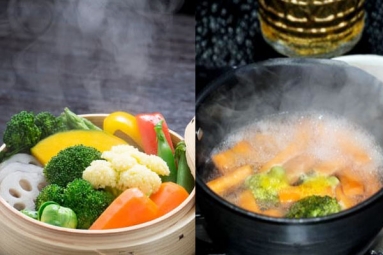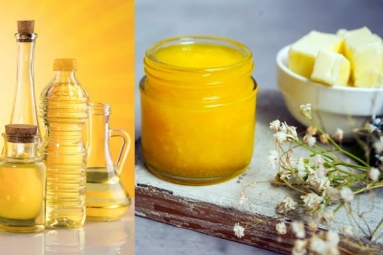
(Image source from: Canva.com)
Let's face it, our vegetable baskets won't feel complete without including potatoes. This adaptable veggie is not just inexpensive but can also be made into many different meals like French fries, cheese balls, curries, and more. But that’s not all. Potatoes can also serve as a binding ingredient for tikkis and even as a cleaning agent for dishes, which is why a lot of folks choose to buy and stockpile them. However, have you observed that when you keep potatoes for too long, they often start to sprout, producing white shoots on their surface? If you have, then today we will explore if eating sprouted potatoes is safe. A report from Healthline states that sprouted potatoes contain two compounds called glycoalkaloids, which are solanine and chaconine. These help regulate cholesterol and blood sugar levels when consumed in small amounts. Yet, if taken in large quantities, these two compounds can be harmful to your health. Consuming too much glycoalkaloid at lower doses can lead to symptoms like vomiting, diarrhea, and stomach pain, according to Healthline. On the other hand, eating a large number of them can lead to headaches, fevers, a racing heartbeat, low blood pressure, and other health issues.
Reasons to Stay Away from Sprouted Potatoes:
Turns Toxic: Glycoalkaloids, which are mostly found in a potato's leaves, flowers, eyes, and sprouts, can be harmful to humans and may lead to stomach and nerve problems. Signs of glycoalkaloid poisoning include nausea, headaches, stomach cramps, diarrhea, vomiting, and more severe complications.
Tastes Bitter: Sprouted potatoes can taste bitter because of higher glycoalkaloid levels, making them unappetizing to eat.
Reduces Nutritional Value: The nutrients held in potatoes are lost when they sprout, decreasing their overall nutritional worth.
Can You Lower the Toxicity of Sprouted Potatoes?
Removing the eyes, green skin, sprouts, and bruised areas of potatoes might help reduce their toxicity; however, this method may still carry some risk. Peeling the potatoes and frying them might lower glycoalkaloid levels too. However, methods like boiling, baking, or microwaving them do not significantly reduce these toxins.
According to the National Capital Poison Centre, the safest choice is to throw away any potatoes that have sprouted or turned green. If you want to prevent sprouting in potatoes, it's best not to buy in bulk. Try to buy only what you need for about a week or two and keep them in a cool, dark, and dry place. Ideally, you should cook them within a few days after purchasing. Click here for tips on how to store potatoes correctly at home.







